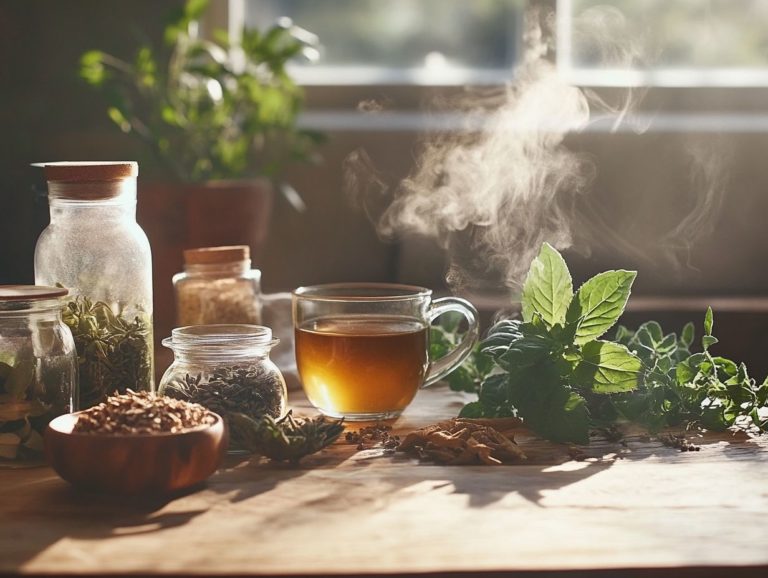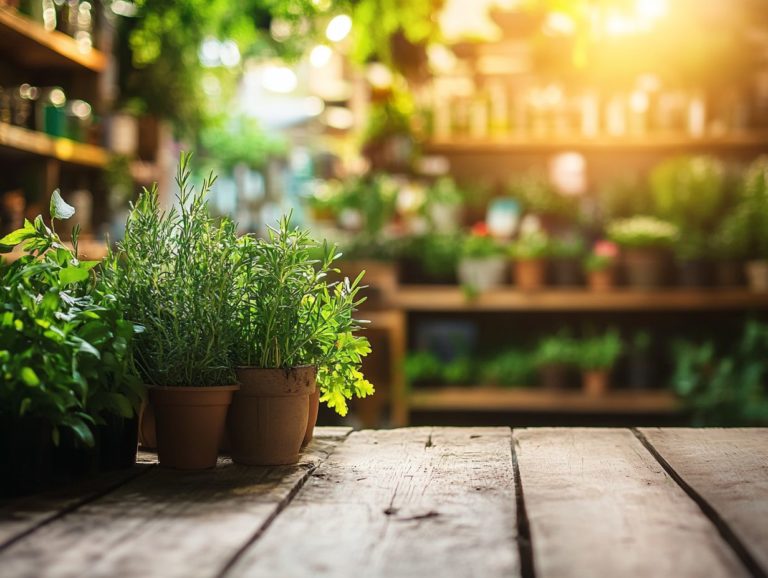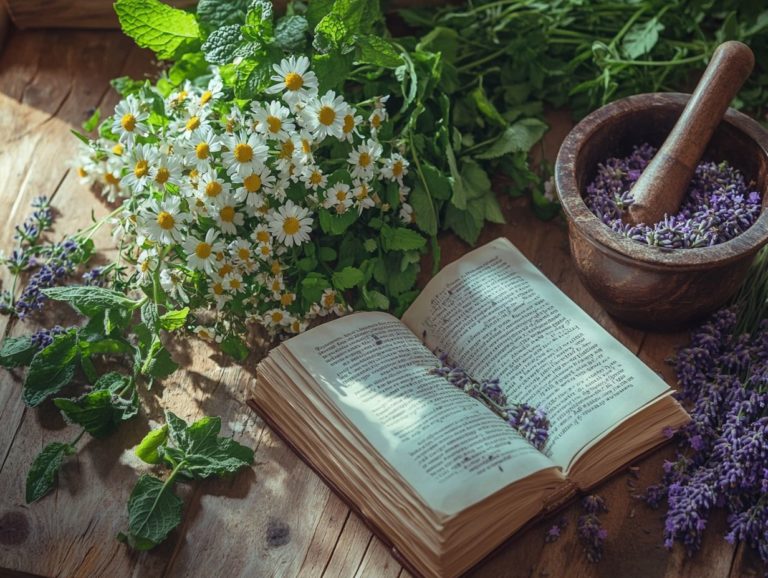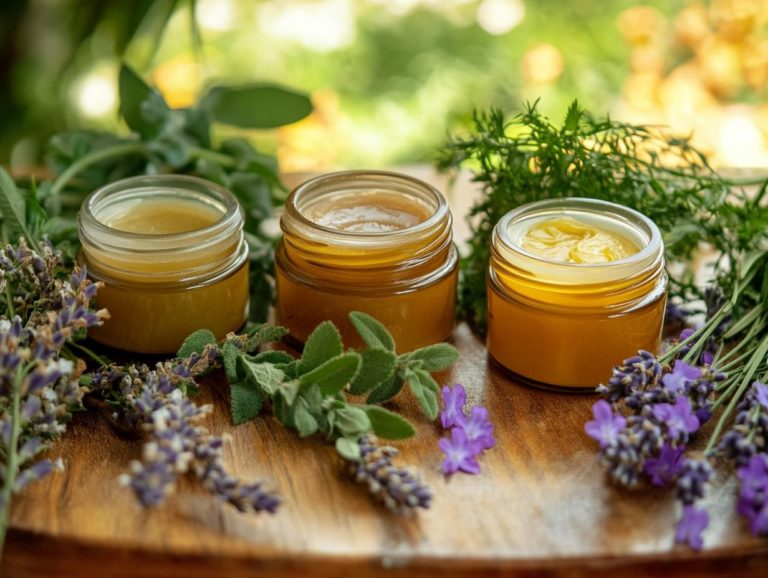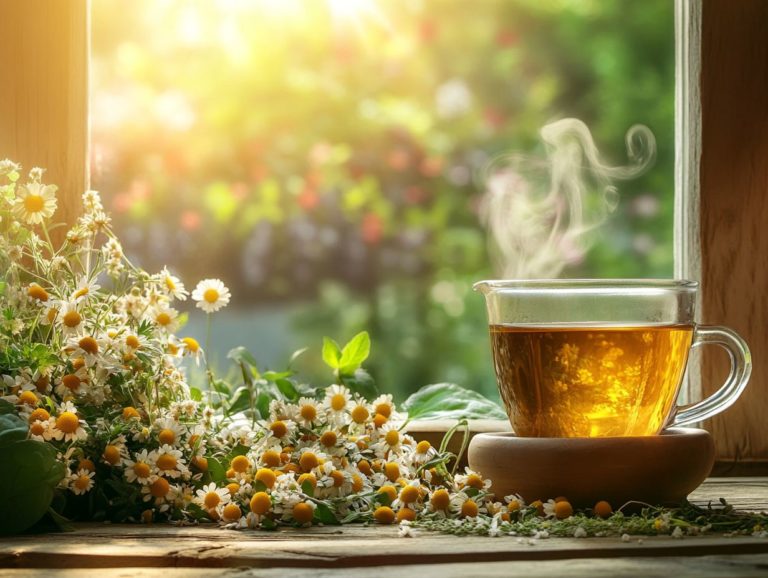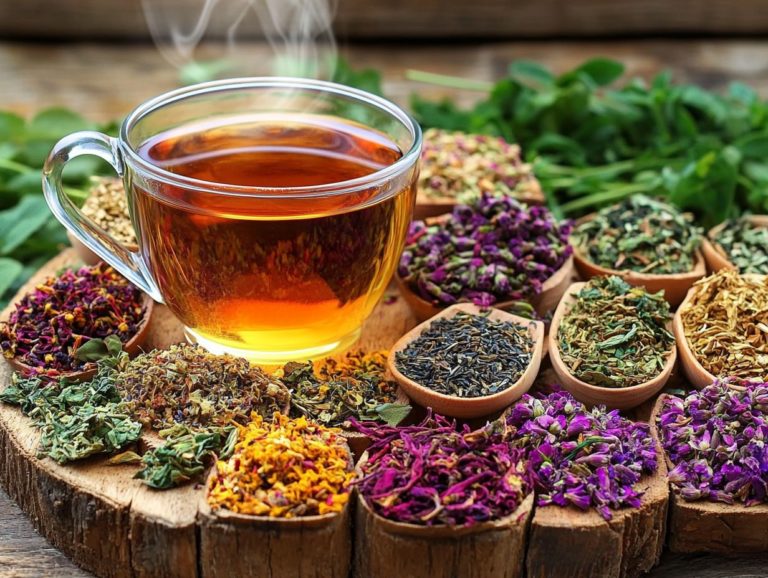What Are the Differences Between Herbs and Spices?
Herbs and spices transcend mere flavor enhancement; they are vital components that infuse character into your dishes, provide health benefits, and embody rich cultural narratives, showcasing both culinary and medicinal properties.
This article delineates the distinctions between herbs and spices, delves into their culinary and medicinal applications, and unveils their historical significance across diverse cuisines. It emphasizes their unique properties and uses in seasoning while illuminating their nutritional advantages. Additionally, it offers practical tips and recipes for seamlessly integrating these vibrant ingredients into your daily meals.
Whether you re a seasoned chef or an eager novice, you ll discover exciting ideas that will inspire your cooking today! Unlock a world of flavors and dried herb combinations.
Contents
- Key Takeaways:
- Understanding Herbs and Spices
- Common Uses of Herbs and Spices
- Cultural and Historical Significance
- Nutritional Benefits of Herbs and Spices
- How to Incorporate Herbs and Spices into Your Diet
- Frequently Asked Questions
- What are the differences between herbs and spices?
- Do herbs and spices have different nutritional values?
- Can herbs and spices be interchanged in recipes?
- Are herbs and spices used in different types of cuisines, such as Indian or French cuisine?
- Do herbs and spices have different shelf lives?
- Can herbs and spices have medicinal benefits?
Key Takeaways:
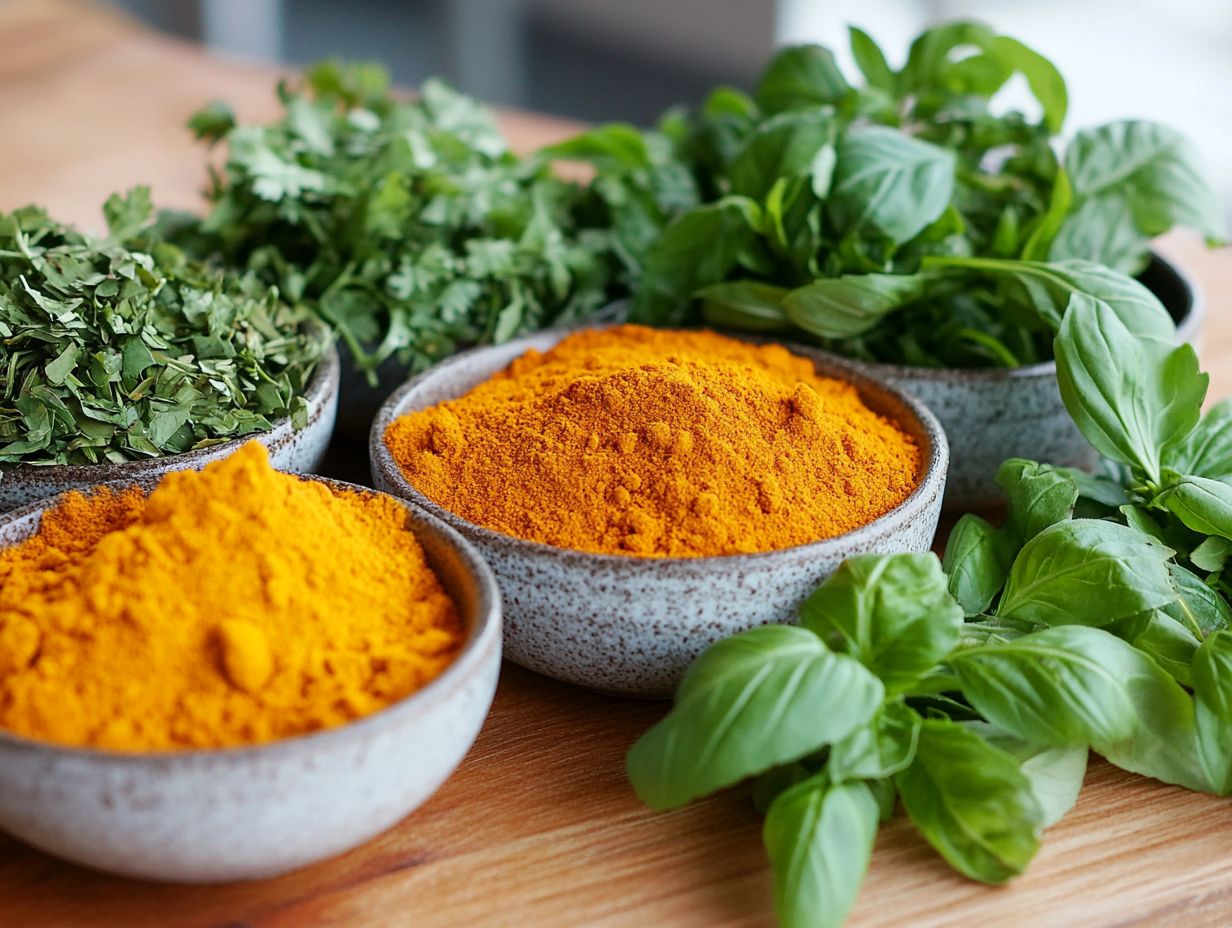
- Herbs and spices are both plant-based flavor enhancers, but they have distinct differences in terms of origin, taste, and usage in cooking.
- Herbs are typically used for culinary and medicinal purposes, adding unique aromas and textures to your dishes. Spices, in contrast, are primarily used for flavor and preserving food, though many herbs and spices also offer overlapping benefits and can be used interchangeably.
- The use of herbs and spices in cooking is deeply rooted in different cultures and has shaped the unique flavors of various cuisines around the world. Incorporating them into your diet can not only add flavor but also provide important nutrients and potential health benefits.
Understanding Herbs and Spices
Understanding herbs and spices is essential for elevating your cooking adventures and amplifying medicinal benefits. These plant-based ingredients offer a rich tapestry of flavors, aromas, and textures, making them critical in cuisines worldwide.
From the savory nuances of basil and oregano to the sweet whispers of cinnamon and nutmeg, herbs and spices do more than just enhance the taste of your dishes; they also contribute a wealth of health benefits and preservation qualities.
Their unique characteristics stem from essential oils and natural chemicals, ensuring they hold a vital position in both your cooking adventures and wellness journey, enhancing everything from flavor to health effects.
Defining and Differentiating
Understanding the distinction between herbs and spices is essential for enhancing your culinary and medicinal knowledge, as each contributes different layers of flavor to your dishes.
Herbs are typically the vibrant, green, leafy parts of plants, often used fresh or dried to elevate the flavor and aroma of your dishes think basil and cilantro. Spices, in contrast, are sourced from other plant parts, such as seeds, bark, or roots, and are generally dried and ground into powders; consider cinnamon and cumin.
The unique contributions of herbs and spices not only elevate the taste profiles of your meals but also offer health benefits, as many possess medicinal properties. For anyone truly passionate about cooking, grasping these differences unlocks a treasure trove of flavor possibilities.
Common Uses of Herbs and Spices
Herbs and spices are essential to your culinary adventures and medicinal practices, providing a wealth of possibilities to elevate flavor, aroma, and well-being. Their versatility enriches your dishes and contributes significantly to health benefits, making them critical in your kitchen and beyond.
Culinary and Medicinal Applications
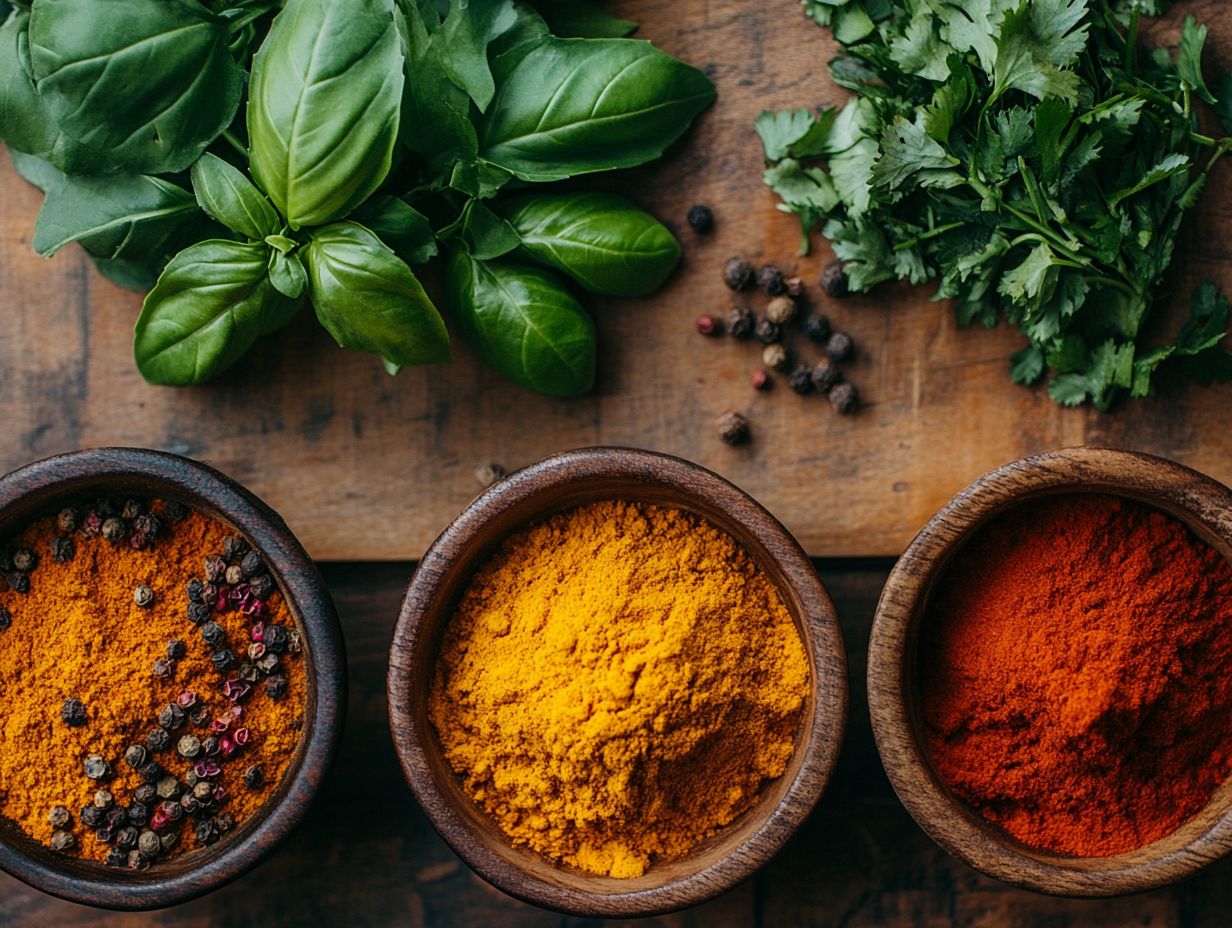
The culinary and medicinal applications of herbs and spices are remarkable. They enhance both your dishes and your health.
Take garlic, for instance. It not only elevates the flavor profile of your meals but also boasts powerful anti-inflammatory and antimicrobial properties.
This makes garlic a must-have in your kitchen and medicine cabinet, especially in recipes that require a fragrant touch.
Then there’s turmeric, with its stunning yellow hue. This spice is celebrated for its active ingredient, curcumin, linked to reduced inflammation and improved brain function.
Cumin has an earthy flavor that brings depth to global cuisines. It also aids digestion and boosts immunity.
This harmonious blend of culinary delight and health benefits shows how incorporating these ingredients, including dried herbs and spices, into your daily meals can lead to richer flavors and enhanced well-being.
Cultural and Historical Significance
The cultural and historical significance of herbs and spices is profound. They have influenced trade, cuisine, and societal practices across centuries.
Their rich legacy intertwines with human history, shaping not only flavors but also economies and cultures.
How Herbs and Spices Have Shaped Different Cuisines
Herbs and spices have significantly influenced a variety of cuisines. From fragrant garam masala in Indian cooking to delightful herbs de Provence in French dishes, these ingredients are essential.
They do more than just enhance flavors; they embody deep cultural significance, often rooted in traditions that have lasted for centuries.
For example, in Middle Eastern cuisines, za’atar a blend of thyme, sesame, and sumac creates a seasoning that tells a story of the region’s rich history.
In Mexican cuisine, the versatility of cilantro and chili peppers showcases vibrant flavors and culinary techniques. Family recipes are lovingly passed down through generations, transforming ordinary dishes into cherished food heritage.
Explore the incredible richness of global culinary practices today! Discover flavors that connect cultures and celebrate history, including famous spice blends from around the world.
Nutritional Benefits of Herbs and Spices
The nutritional benefits of herbs and spices are impressive. They provide essential nutrients and health effects that enhance overall well-being and vitality.
Embracing these flavorful additions to your diet can elevate your meals and allow you to thrive in every aspect of life.
Key Nutrients and Health Effects
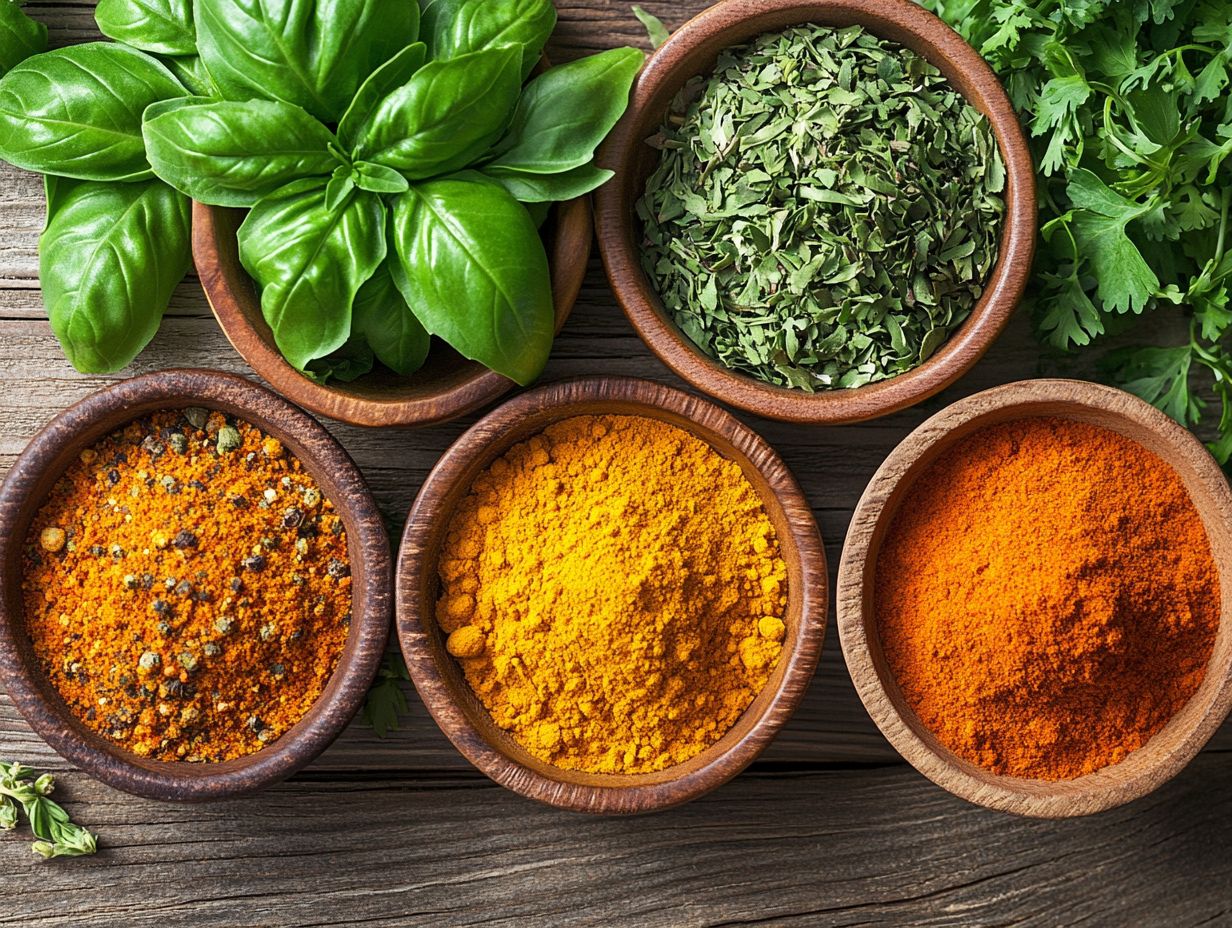
Key nutrients found in herbs and spices do more than elevate your dishes. They bring significant health benefits, including properties that help maintain a healthy diet.
These culinary treasures are often rich in antioxidants, vitamins, and minerals, crucial for enhancing your overall wellness. For example, turmeric contains curcumin, a powerful anti-inflammatory ingredient.
This compound can help reduce chronic inflammation linked to diseases like heart disease and cancer.
Garlic also deserves attention for its allicin content, which offers remarkable cardiovascular benefits, lowering blood pressure and cholesterol levels.
Let’s not overlook parsley; it’s packed with vitamins A, C, and K, supporting your immune function and bone health.
Scientific studies consistently showcase these benefits. Consider incorporating these nutrient-dense botanicals into your daily diet for immediate health benefits!
How to Incorporate Herbs and Spices into Your Diet
Incorporating herbs and spices into your diet can elevate your everyday cooking experience. They enhance the flavor of your meals and offer a wealth of health benefits, enriching your overall well-being.
Tips and Recipes for Using Herbs and Spices in Cooking
Creating flavorful dishes with herbs and spices is a breeze when you have the right tips and recipes at your fingertips. From the warm notes of rosemary to the bright freshness of mint, you can easily transform your meals.
With a few essential techniques and a keen understanding of different flavor combinations, you can elevate your culinary creations. For example, mastering the simple technique of toasting spices will enhance their natural oils and flavors, adding delightful depth to your meals.
Imagine experimenting with combinations like rosemary and garlic for roasted vegetables or coriander and cumin in a vibrant curry! These pairings introduce exciting new tastes to your palate.
To kick things off, try recipes like herb-crusted chicken or a fragrant basil pesto. Other combinations, such as cumin and coriander, beautifully showcase the versatility of herbs while highlighting their distinctive qualities. Don t miss out on these delicious options!
Frequently Asked Questions
What are the differences between herbs and spices?
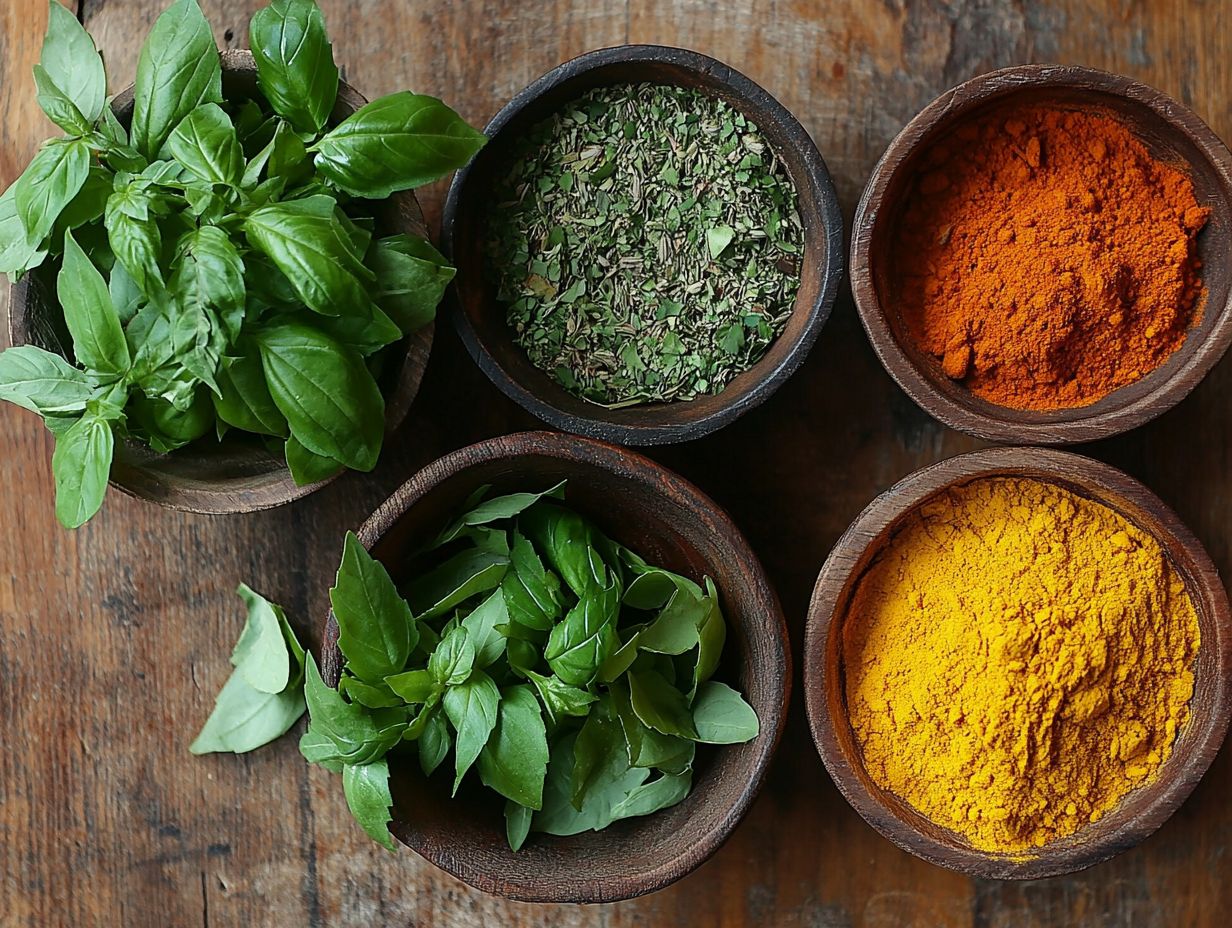
Herbs and spices both add flavor to dishes, but they come from different parts of plants. Herbs come from the leaves, while spices come from seeds, roots, and bark.
Do herbs and spices have different nutritional values?
Yes, they do! Herbs are high in antioxidants and vitamins, while spices offer more minerals and essential oils.
Can herbs and spices be interchanged in recipes?
While both enhance flavor, they have distinct tastes and should not be used interchangeably. Herbs are more subtle, while spices are stronger and more pronounced.
Are herbs and spices used in different types of cuisines, such as Indian or French cuisine?
Yes! Herbs are commonly used in Mediterranean and European cuisines, while spices are prominent in Asian, Indian, and Middle Eastern cuisines.
Do herbs and spices have different shelf lives?
Yes, they do! Herbs tend to lose their flavor quicker and should be used within 6 months, while whole spices can last for 2-3 years.
Can herbs and spices have medicinal benefits?
Yes! Both have been used for medicinal purposes for centuries. Herbs are known for their calming effects, while spices often provide anti-inflammatory and immune-boosting benefits.

